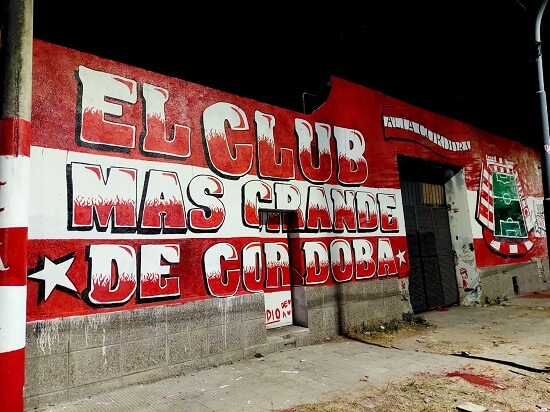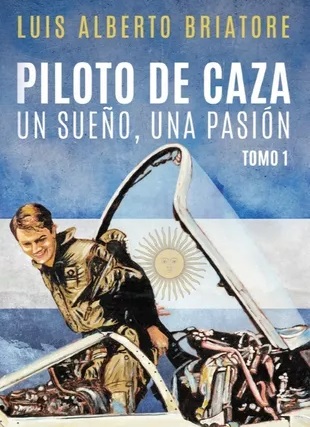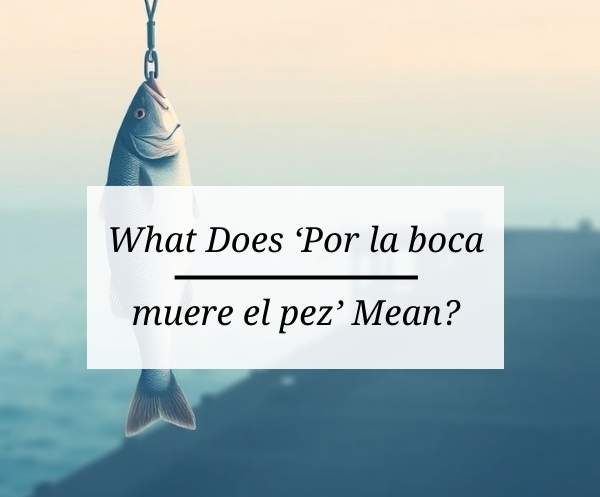Anglicisms are English words or expressions that are integrated into another language, such as Spanish. Examples of English words in popular Spanish media include terms like “fútbol”, “mánayer”, and “crack”.
Understanding Anglicisms is important because it reflects the influence of English on global languages and allows for better communication and cultural understanding in a interconnected world. English’s dominance in various domains, including technology and media, makes it essential to recognize and navigate the impact of the English language.
Anglicisms: Examples of English Words in Spanish Speak
As an English speaker, you’ll likely recognize these words when you come across them in Spanish conversations or texts, showcasing the widespread impact of English on global languages.
Culinary Terms: Foods, Beverages, and Utensils
Bol - It comes from the English word “bowl.” Its usage in Spanish mirrors that in English, describing a deep, rounded dish without a lid, typically used for serving foods like cereals or salads. This word has not undergone any changes since its introduction into Spanish.
Cóctel - It originates from the English word “cocktail.” The English term’s origin is debated, but it is widely believed to have emerged in the early 19th century, referring to a mixed alcoholic drink.
Hot Dog / Perro Caliente / Pancho / Completo - A bread roll with a sausage and various condiments, known by different names depending on the region and variety of Spanish.
Ketchup / Catsup / Catchup - The term “ketchup” is an Anglicism in Spanish, but its origins are not English. It evolved from the Hokkien Chinese word “kê-tsiap”, a type of sauce made from fermented fish, and was later adapted into the tomato-based condiment we know today in the United States during the early 19th century.
Sándwich - Named after John Montagu, the 4th Earl of Sandwich, it’s known as “sándwich” in Spanish and it is pronounced almost identically to English. From its origins in the 18th-century English aristocracy, the concept of a sandwich evolved and became a staple in various cuisines, including Spanish and Hispanic ones.

Tupperware / Táper - A term for plastic containers with lids used for food storage, it has been adapted into Spanish as “táper.” This adaptation is a phonetic transcription of the original English word into Spanish orthography, resulting in the colloquially used “táper,” reflecting its widespread use and integration into everyday Spanish.
Anglicisms in Entertainment and Public Spaces
Camping - This term mirrors the English usage and is a widely accepted Anglicism in Spanish, similar to “parking” in some varieties and regions.
Campus - Refers to a university area encompassing buildings like faculties, residences, and libraries. Its usage in Spanish is similar to English, with only a slight adaptation in pronunciation.
Club - It can refer to a group of people, such as sports associations, “club atlético”, or a disco for dancing, “club nocturno”. This Anglicism retains both connotations present in the English language.

Hotel - It is used to refer to large inns. As inns grew in size, the English term ‘hotel’ was adopted into Spanish without significant changes, except for the pronunciation of the initial “h.”
Sex shop - It entered the Spanish language as part of the global spread of such shops and the growing acceptance and commercialization of adult products and sexual enhancement items.
Supermarket / Supermercado - It emerged in the United States during the early 20th century. However, in the case of Spanish, a fully adapted version of the term also emerged: “supermercado.” This adaptation reflects the natural tendency of languages to assimilate foreign words and phrases in a way that aligns with their own phonetic and grammatical rules.
Anglicisms in Professional and Occupational Terms
Barman - This compound has not undergone any significant adaptation process. The direct borrowing of “barman” reflects the broader trend in many languages to incorporate English terms, especially those related to new or specific professional roles that may not have an existing equivalent in the language.
Broker: This term is used in Spanish to refer to individuals specialized in stock and financial trading. Its introduction into the Spanish language has been influenced by the translation of Hollywood movies, where the term is often retained without translation.
Cameraman: In Spanish, this word describes someone in charge of operating cameras for filming movies, news reports, interviews, and similar media. Recognized by the Royal Spanish Academy, there isn’t a direct Spanish synonym for “cameraman.”
Casting: This term refers to a specialized type of interview in the entertainment industry, where a casting director evaluates and selects candidates for roles. Traditionally, the Spanish term “prueba” (meaning test) was used, but “casting” has become more prevalent.
Cátering: In Spanish, this term describes the preparation of food for events, often delivered to a specified location. The term has been directly adopted from English without significant changes, mainly the pronunciation and the accent added to the “a”.

Cowboy: Its introduction into the Spanish language has been influenced by the translation of Hollywood movies, where the term is often retained without translation. Its literal translation, “vaquero” (cow man) is sometimes used.
Detective: This term in Spanish describes a person who investigates crimes or disappearances. It might refer to a private investigator or a police detective. While the pronunciation has been slightly adapted to Spanish phonetics, the spelling remains close to the English.
Disk Jockey / DJ / Pinchadiscos: Referred to as a DJ or “Disk Jockey,” this person is responsible for playing and mixing music, especially in dance clubs or discos. The term “Pinchadiscos” is a direct translation but is less commonly used, with many Spanish speakers pronouncing it “dee jay.”
Guardacostas: Derived from “coastguard,” this term in Spanish denotes someone responsible for monitoring and ensuring safety along coastal areas.
Manager / Mánayer: Used in the context of business or entertainment, this term refers to a person who manages various aspects of a profession or organization. In music, for instance, it refers to someone who arranges shows for a band.
Piloto / Copiloto: These terms are used for individuals responsible for flying aircraft, such as planes or helicopters. “Piloto” and “Copiloto” are slight adaptations of the English “pilot” and “co-pilot,” with minimal changes to fit Spanish spelling and pronunciation.

Relaciones Públicas: This phrase, a direct translation of “public relations,” refers to professionals who manage public perceptions and relations for individuals or organizations, particularly in corporate or entertainment settings.

Turista: This term, adapted from the English “tourist,” refers to a person who travels for leisure, typically to places they don’t frequently visit. The adaptation mainly involves adding a final vowel to align with Spanish spelling conventions.
Anglicisms in Sports and Recreational Activities
Aerobics - The aerobics phenomenon gained even greater global popularity with the release of Jane Fonda’s Workout video in 1982. In Spanish-speaking countries, as in other parts of the world, aerobics became a popular form of group exercise in gyms and fitness centers. It reflects the global influence of English on the lexicon of sports and fitness.
Béisbol - It has been phonetically adapted to Spanish, from “baseball,” yet it retains the essence and structure of the original English word, symbolizing the game’s global popularity and influence.
Boxeo - This term in Spanish is derived from the English word “boxing,” adjusted to fit Spanish pronunciation and spelling conventions. The sport is known for its combination of strategy, strength, and endurance, and has a significant following worldwide.
Corner - In soccer, the term “corner” is commonly used to refer to a corner kick. This usage directly borrows the English word “corner,” which simply translates to “esquina” in Spanish.
Crack - It is used to describe a person who is exceptionally talented or skilled in a particular field, such as sports. It is often used as a slang term to praise and acknowledge someone’s outstanding abilities or achievements.
Fútbol - The word itself, “football,” has been incorporated into Spanish by imitating the British pronunciation, and it has also led to the creation of a similar term with a different origin: “balompié.”
Gol - A “gol” is a point scored in a football match when the ball is placed into the opponent’s goal. However, this term is considered redundant because we already have the word “tanto” (point) to describe the same concept, although it is seldom used.
Golf - Even though its linguistic origins are rooted in Scotland, the game’s British and Scottish heritage played a significant role in shaping its terminology and contributing to the use of the word “golf” around the world.
Knock-out - When broadcasting boxing in Spanish, the term “knock-out” is typically spelled as “K.O.” to describe a situation where one of the participants loses consciousness due to a powerful blow or series of blows. This term, spelled as “nocaut” in some regions, is now included in the Royal Spanish Academy (RAE) dictionary.

Mountain bike / mountain biking - While “bicicleta de montaña” or “ciclismo de montaña” exist in Spanish, the English terms “mountain bike” and “mountain biking” are commonly used to describe this sport, and they are just as common as the translated terms, if not more so.
Penalti / Penal - A crucial aspect of football where a team is rewarded with a direct free kick at the opponent’s goal. The term is not only widely understood but also firmly entrenched in the language of football enthusiasts, showcasing the influence of English football terminology on the global sports lexicon.
Skate - Skateboarding enthusiasts, commonly known as “skaters,” ride a board with four wheels and engage in various tricks and maneuvers. In Spanish, the term “skate” is used quite commonly to describe this activity, and it’s often used interchangeably with its Spanish translation “patineta” or “patín.”
Snowboarding - There hasn’t been a specific Spanish term developed to directly describe this sport. As a result, the English term “snowboarding” is commonly used by Spanish speakers to refer to this exciting winter activity, highlighting its global recognition and influence on the sport’s lexicon.
Surf - While one could say “montar las olas,” the English term “surf” is commonly used in Spanish to refer to this sport. Its usage demonstrates the strong influence of surfing culture and terminology on the global sports community, transcending language barriers and becoming a universal term for this popular water sport among Spanish speakers.
Water polo - While a literal translation might be “polo acuático” or “polo en el agua,” the English term “water polo” is commonly used in Spanish to refer to this challenging aquatic sport.
Anglicisms in Fashion and Apparel
Bikini / Biquini - It can be spelled either as in English or adapted to Spanish as “biquini.” This adapted form is recognized and accepted by the Royal Spanish Academy. The term has its origins in the Bikini Atoll and is widely used in Spanish-speaking countries
Body - In Spanish, “Body” refers to a sleeveless garment covering the torso, unchanged from English and not listed in the RAE dictionary.
Bóxer - It refers to a type of supportive, legged underwear commonly made from lycra. In Spanish, the term has been slightly modified by adding an accent, aligning it with Spanish grammatical rules. Despite this change, its pronunciation remains similar to the English word.
Esmoquin - A black jacket and trousers, though white versions also exist, known for their elegance. This term in Spanish has been graphically adapted from the English ‘Smoking,’ modifying the “k” to “qu” and dropping the final “g” yet its pronunciation closely mirrors the original English word.
Jersey - A woolen garment covering the torso and arms. Recognized in the Royal Spanish Academy’s Dictionary, it’s a commonly used term. The word has undergone slight phonetic adjustments in Spanish, such as shifting stress from the first syllable to the second and adapting the pronunciation of the “j” to fit Spanish phonetics.
Pijama - This term has been graphically altered from the English “pajama” by changing the initial “a” to a “i.” Recognized by the Royal Spanish Academy, “pijama” is an established term in the Spanish language for bedtime attire.
Poliéster - It is a type of fabric known for its high resistance to moisture. This word is derived from the English “polyester,” retaining much of its phonetics and spelling, with the only significant change being the alteration of “y” to “i.”

Shorts - In Spanish, “Shorts” refers to short pants. This term, directly borrowed from English, retains its original meaning and spelling without any modifications in its transition to Spanish usage.
Top - A type of bra commonly used for sports, characterized by its lack of underwire. Despite not undergoing linguistic adaptation, this term has been recognized and included in the Royal Spanish Academy’s Dictionary.





